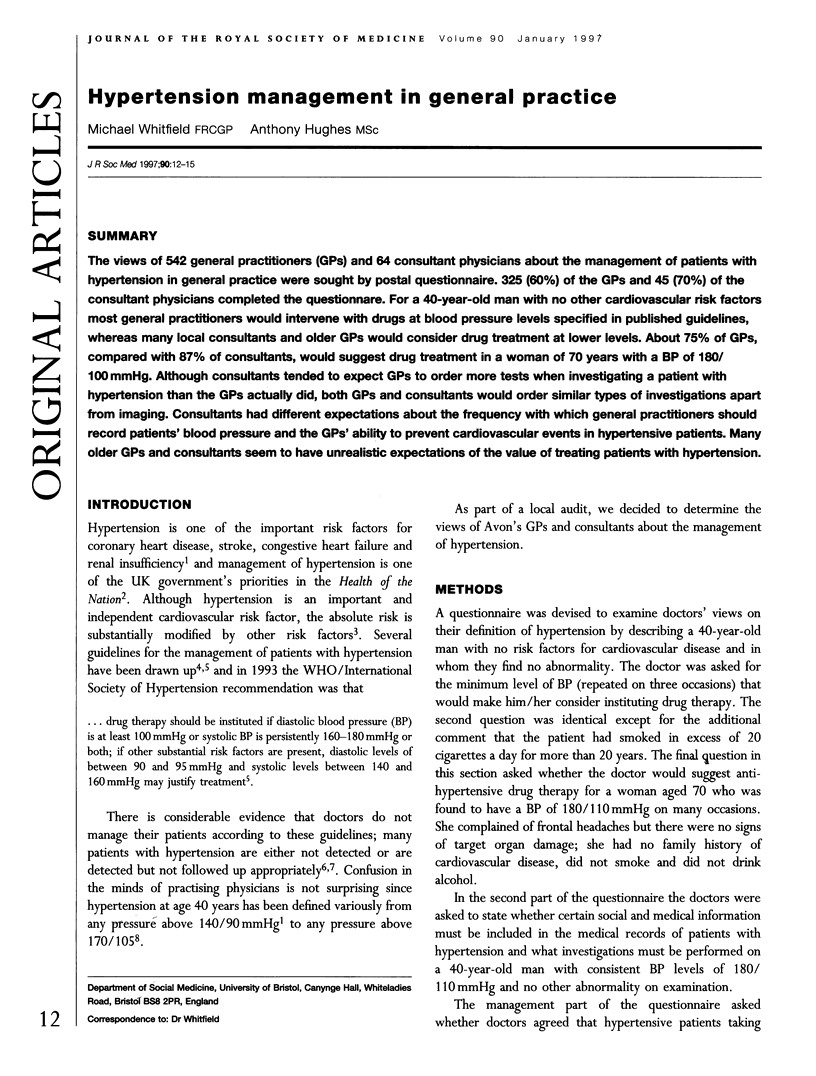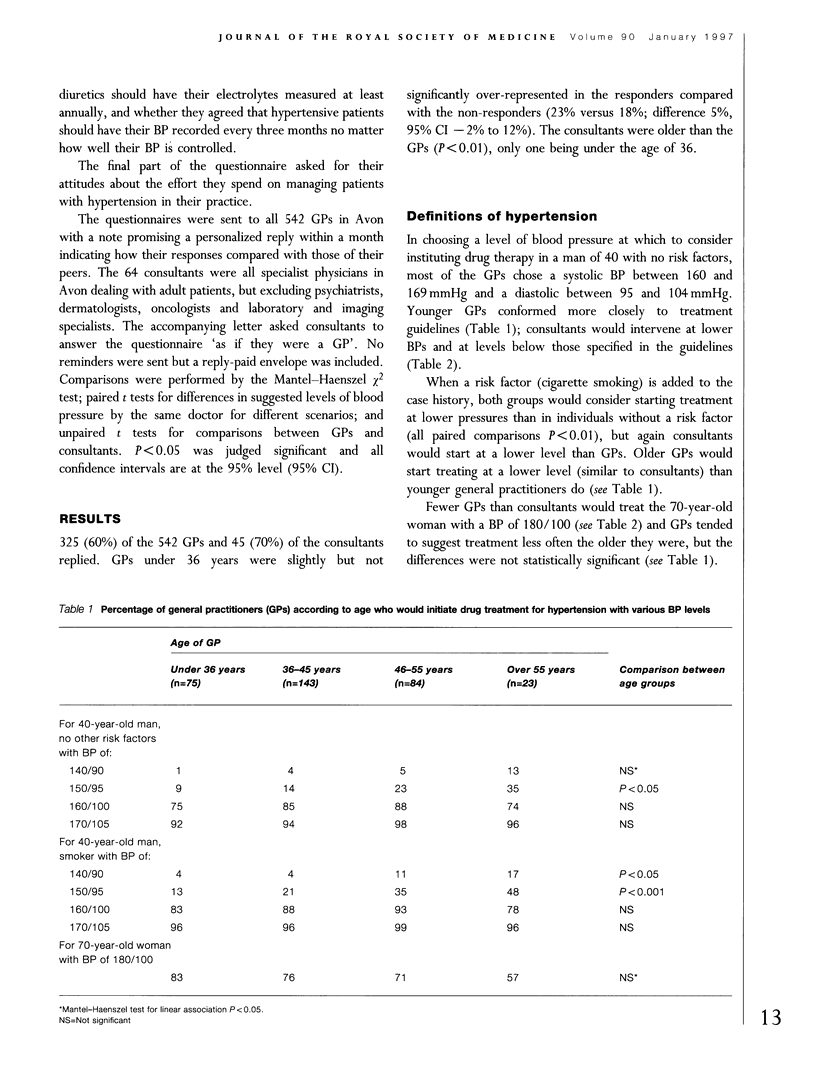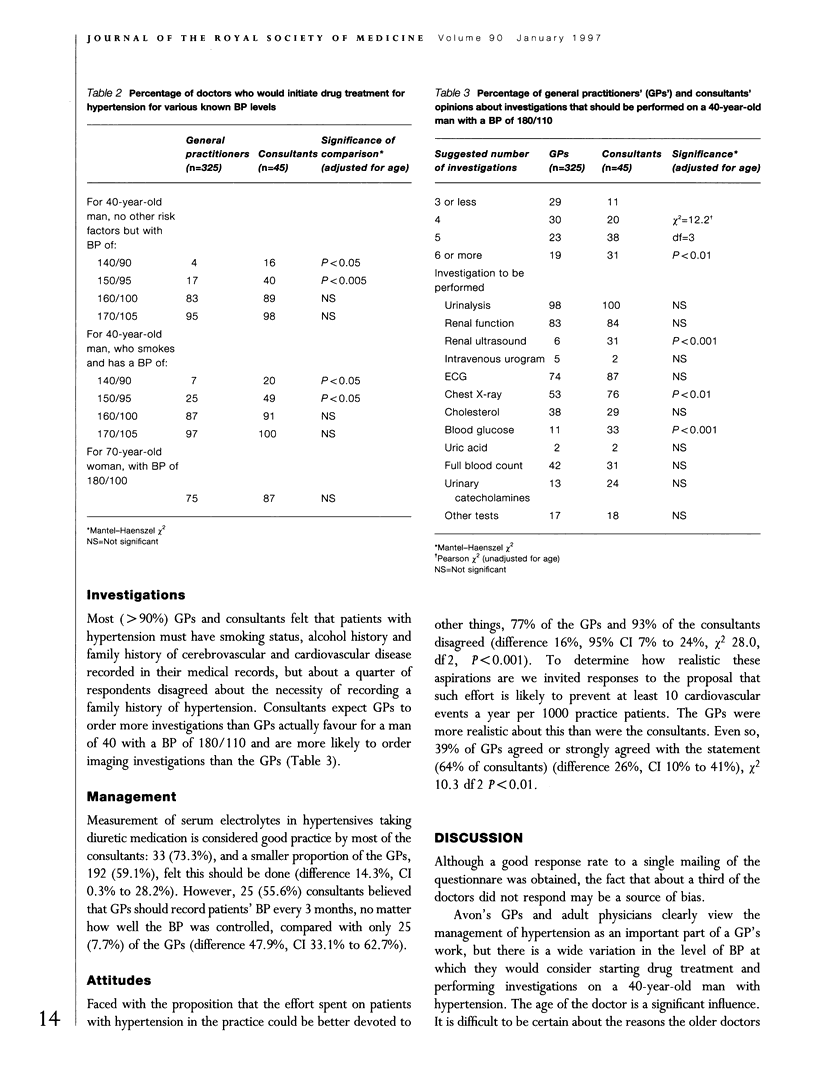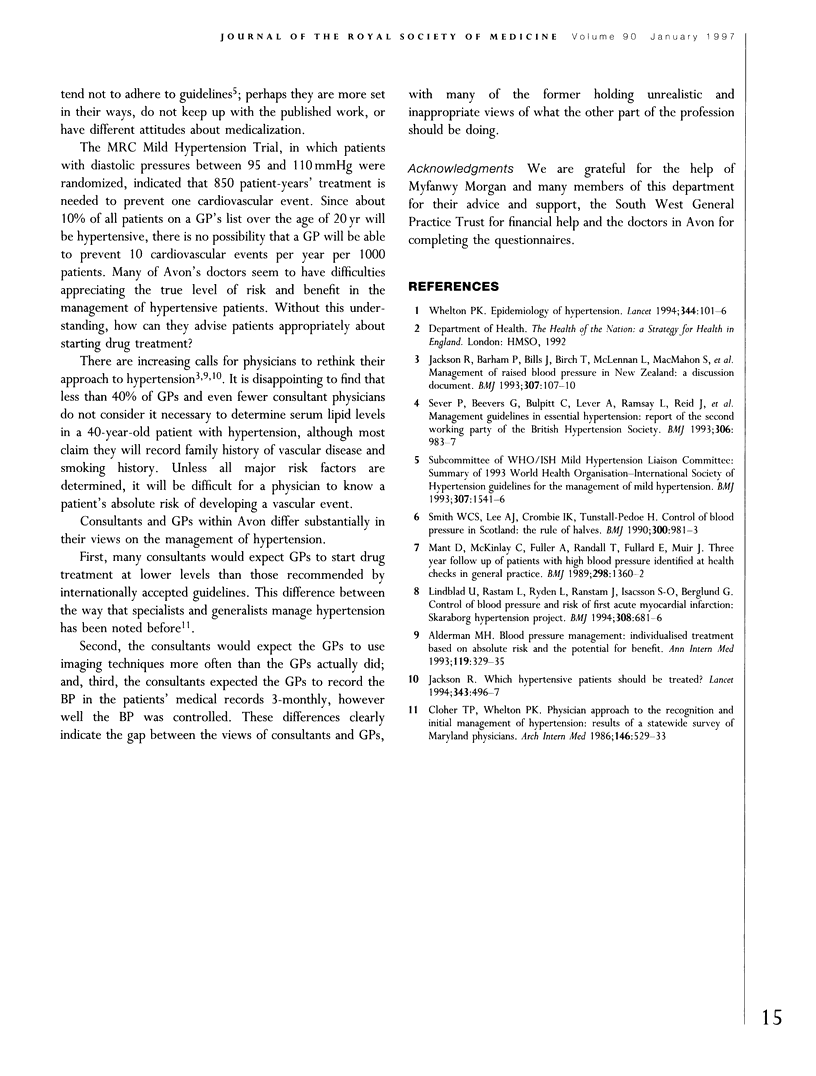Abstract
The views of 542 general practitioners (GPs) and 64 consultant physicians about the management of patients with hypertension in general practice were sought by postal questionnaire. 325 (60%) of the GPs and 45 (70%) of the consultant physicians completed the questionnaire. For a 40-year-old man with no other cardiovascular risk factors most general practitioners would intervene with drugs at blood pressure levels specified in published guidelines, whereas many local consultants and older GPs would consider drug treatment at lower levels. About 75% of GPs, compared with 87% of consultants, would suggest drug treatment in a woman of 70 years with a BP of 180/100 mmHg. Although consultants tended to expect GPs to order more tests when investigating a patient with hypertension than the GPs actually did, both GPs and consultants would order similar types of investigations apart from imaging. Consultants had different expectations about the frequency with which general practitioners should record patients' blood pressure and the GPs' ability to prevent cardiovascular events in hypertensive patients. Many older GPs and consultants seem to have unrealistic expectations of the value of treating patients with hypertension.
Full text
PDF



Selected References
These references are in PubMed. This may not be the complete list of references from this article.
- Alderman M. H. Blood pressure management: individualized treatment based on absolute risk and the potential for benefit. Ann Intern Med. 1993 Aug 15;119(4):329–335. doi: 10.7326/0003-4819-119-4-199308150-00013. [DOI] [PubMed] [Google Scholar]
- Cloher T. P., Whelton P. K. Physician approach to the recognition and initial management of hypertension. Results of a statewide survey of Maryland physicians. Arch Intern Med. 1986 Mar;146(3):529–533. [PubMed] [Google Scholar]
- Jackson R., Barham P., Bills J., Birch T., McLennan L., MacMahon S., Maling T. Management of raised blood pressure in New Zealand: a discussion document. BMJ. 1993 Jul 10;307(6896):107–110. doi: 10.1136/bmj.307.6896.107. [DOI] [PMC free article] [PubMed] [Google Scholar]
- Jackson R. Which hypertensive patients should be treated? Lancet. 1994 Feb 26;343(8896):496–497. doi: 10.1016/s0140-6736(94)91456-7. [DOI] [PubMed] [Google Scholar]
- Lindblad U., Råstam L., Rydén L., Ranstam J., Isacsson S. O., Berglund G. Control of blood pressure and risk of first acute myocardial infarction: Skaraborg hypertension project. BMJ. 1994 Mar 12;308(6930):681–686. doi: 10.1136/bmj.308.6930.681. [DOI] [PMC free article] [PubMed] [Google Scholar]
- Mant D., McKinlay C., Fuller A., Randall T., Fullard E. M., Muir J. Three year follow up of patients with raised blood pressure identified at health checks in general practice. BMJ. 1989 May 20;298(6684):1360–1362. doi: 10.1136/bmj.298.6684.1360. [DOI] [PMC free article] [PubMed] [Google Scholar]
- Sever P., Beevers G., Bulpitt C., Lever A., Ramsay L., Reid J., Swales J. Management guidelines in essential hypertension: report of the second working party of the British Hypertension Society. BMJ. 1993 Apr 10;306(6883):983–987. doi: 10.1136/bmj.306.6883.983. [DOI] [PMC free article] [PubMed] [Google Scholar]
- Smith W. C., Lee A. J., Crombie I. K., Tunstall-Pedoe H. Control of blood pressure in Scotland: the rule of halves. BMJ. 1990 Apr 14;300(6730):981–983. doi: 10.1136/bmj.300.6730.981. [DOI] [PMC free article] [PubMed] [Google Scholar]
- Whelton P. K. Epidemiology of hypertension. Lancet. 1994 Jul 9;344(8915):101–106. doi: 10.1016/s0140-6736(94)91285-8. [DOI] [PubMed] [Google Scholar]


